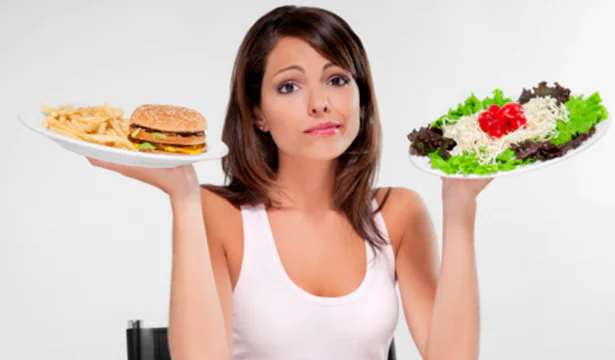Becoming slimmer is the dream of almost every woman. And even if everything is fine with the figure, there is always some detail that you want to correct. So what are we doing? We search through information on the Internet and select a diet that is suitable in OUR opinion. Without consulting a specialist, a general examination and generally understanding what happens to the body during weight loss. Before changing your diet and lifestyle, read this text about the possible consequences of different diets.
First, you need to understand that a diet is not a refusal to eat normally. The diet involves eliminating some foods from the diet and adding new ones. This also does not mean that you should reduce the number of meals on the contrary, you need to increase them to 5-6 to speed up your metabolism. In addition, any specialist will tell you that for effective weight loss you need to expend more energy than you consume. During a diet, when the body does not receive enough nutrients, it begins to work “in reserve”: this is how it converts carbohydrates into fat cells. And instead of reducing your waist, you get extra centimeters on it. Have you decided to lose weight? Don't starve yourself! The diet must contain proteins, fats, carbohydrates, beneficial microelements and vitamins. In what quantity and ratio, only a nutritionist can say after a preliminary conversation and examination. But what if you can’t see a specialist? The following tips are for you.
Mono-diet is stress for the whole body
Mono-diets sometimes really provide an amazing effect - losing several kilograms in just a month. But imagine the state of the digestive system, which receives the same product in the same quantity every day? Mono-diets and protein diets are the most dangerous for the body. Voluntary refusal of other food has a detrimental effect on immunity, due to the decrease of which all chronic diseases become aggravated. With a protein diet, the liver and intestines are severely affected - possible constipation, bloating, increased gas formation. To avoid this, be sure to take an additional course of vitamins and minerals. Consume plenty of fluids - water and herbal teas: they remove waste, toxins from the body and have a therapeutic effect (for example, mint or chamomile). Reduce portions to make food easier to digest.
What to do with the lethargy that appears?
If the diet is chosen incorrectly (if you choose it yourself, this is quite likely), the overall tone of the body decreases. You may feel lethargic, experience persistent fatigue, muscle weakness, dissatisfaction, and depression. Again, good multivitamins are available without a prescription, but you really need them right now.
Brittle nails, hair, unhealthy complexion
But these comrades accompany almost every diet. We’re not even talking about vitamins – you need to take them a priori. There are entire complexes, on the packaging of which it says “for strong nails and hair.” Vitamin E is responsible for nutrition and moisture saturation B vitamins are involved in the synthesis of collagen and keratin (which are the main building material of nails and hair, are responsible for strength and stimulate growth).
Vitamin C is a good helper for our skin. It fights free radicals, preventing aging, stimulates the skin repair process and improves its color.
All these elements contain multivitamins.
In addition to nourishing from the inside, you can nourish your hair, nails and skin with external products. These are primarily natural oils. Fatty cosmetic oils of cocoa, coconut, shea, argan, and avocado perfectly nourish hair. Ideal companions for the skin are grape and peach seed oils and almond oil. These oils soften the skin, improve complexion, maintain elasticity, have anti-inflammatory, regenerating, moisturizing, softening, toning, brightening and rejuvenating effects.
Don’t forget about herbal infusions that you can drink and take care of your skin.



